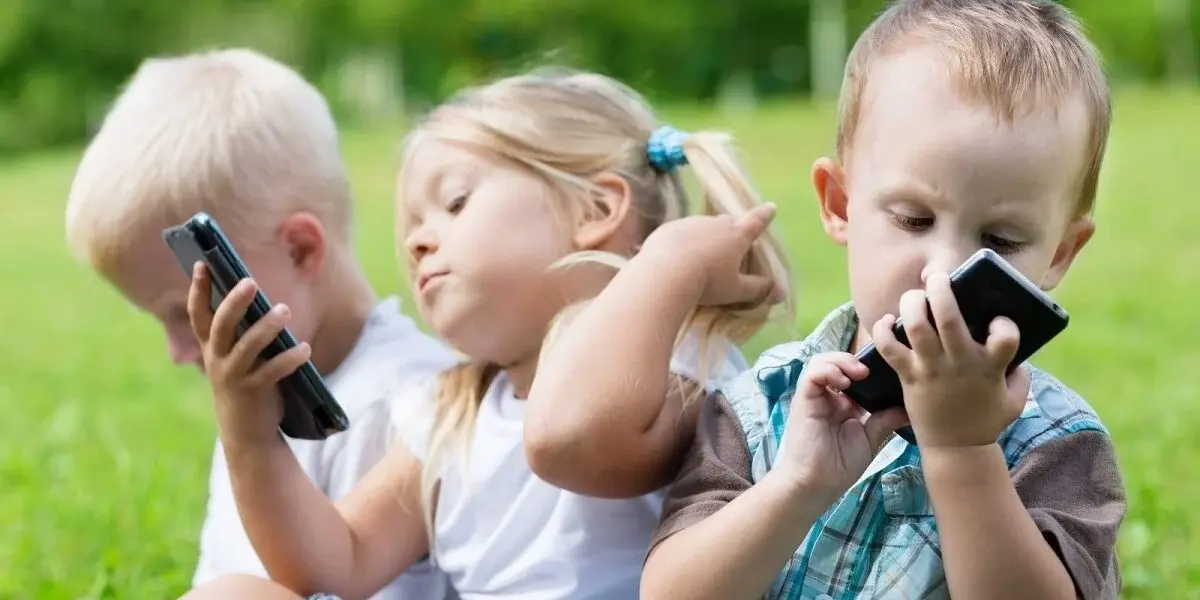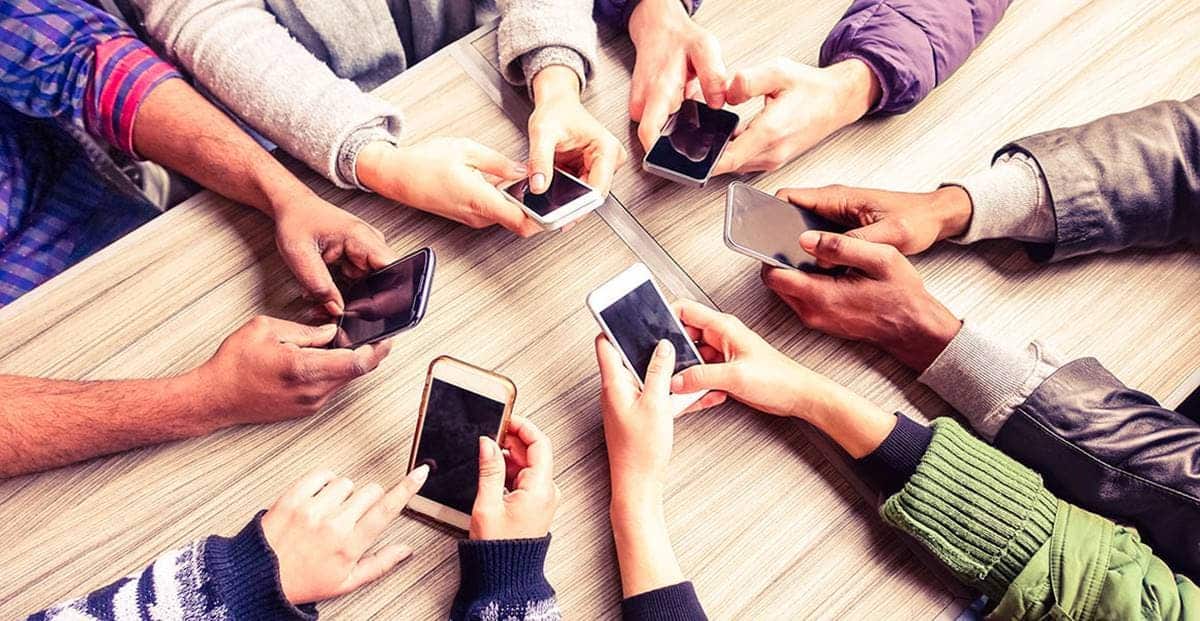In a bold move to improve student focus and overall well-being, elementary and middle schools in the Los Angeles area have decided to ban the use of mobile phones. This decision stems from growing concerns over the negative impact of social media on young minds. The concern is gaining traction across various cities and states in the U.S. The Los Angeles Unified School District Board of Education recently voted to implement this ban starting next year, affecting over 400,000 students. This policy aims to create a more conducive learning environment by reducing distractions and promoting healthier social interactions among students.

Smartphone Ban Details
Starting next school year, students in Los Angeles will still be allowed to bring their phones to school. However, they must be in silent mode and stored in personal lockers during teaching hours. This rule applies to all teaching hours, including breaks and lunchtime. Students will not be able to make calls, send texts, or access social media apps like TikTok during school hours. This policy intends to help students focus better in class and reduce the pressure of constantly staying connected online.
Reasons for the Ban
Alberto Carvalho, chairman of the Los Angeles School District Board, said that social media platforms are harmful influences on young people. The decision to ban mobile phones is primarily driven by concerns over the negative effects of social media, including addiction, cyberbullying, and mental health issues. By limiting mobile phone use, the board aims to mitigate these negative impacts and foster a better learning environment. Research has shown that excessive mobile phone use can lead to reduced attention spans, sleep disturbances, and increased anxiety among students. The board believes that this ban will help create a more focused and healthy school environment.
The move by the Los Angeles School District is prompting other school boards across the U.S. to consider similar bans. School districts in various states are evaluating the potential benefits of restricting mobile phone use to improve student focus and well-being. Florida, for instance, has already enacted a law banning mobile phones in all public and private school classrooms. Other states, such as Utah, Connecticut, Indiana, and Maine, are drafting regulations to ban mobile phones in schools. These measures aim to create a more focused and distraction-free learning environment. The widespread adoption of such policies reflects a growing recognition of the need to address the negative impact of mobile phones on students.

Legislative Support
California Governor Newsom has expressed support for the ban, emphasizing the need for legislative action to limit mobile phone use in schools. This aligns with a broader push to prioritize student learning over screen time. Newsom’s support indicates a willingness to consider state-wide legislation to regulate mobile phone use in educational settings. The governor’s statement shows the importance of creating a learning environment that prioritizes education and minimizes distractions. By advocating for legislative action, Newsom aims to set a precedent for other states to follow in tackling the issue of mobile phone use in schools.
Following Florida’s lead, several other states, including Utah, Connecticut, Indiana, and Maine, are drafting regulations to ban mobile phones in schools. These states recognize the potential benefits of creating a more focused and distraction-free learning environment. By having similar bans, they aim to reduce the negative impact of mobile phones on student learning and well-being.
Student Reactions
The ban has met with mixed reactions from students. Some argue that mobile phones are not the main factor stopping learning and that the decision was made without student input. They believe that mobile phones can be useful tools for learning and communication. Others worry about not being able to access info or contact family and friends during school hours. Some students feel that the ban will isolate them from their peers and limit their ability to stay connected. Despite these concerns, the school board maintains that the benefits of the ban outweigh the drawbacks. The board believes that reducing distractions and promoting face-to-face interactions will improve the school setting.

Positive Effects Observed
A survey by Norwegian scholars showed that after banning mobile phones, girls’ academic performance and mental health improved a lot. The ban also had a major effect on kids from low-income families. These students often face extra challenges, and reducing mobile phone use can help create a more fair playing field. The survey found that students were more focused in class and less likely to be distracted by their phones. Also, the drop in screen time helped improve sleep and overall well-being. The positive effects observed in the survey highlight the potential benefits of limiting mobile phone use in schools.
Legal Actions Against Social Media
In addition to the ban on phones, over 200 school boards in the U.S. are suing social media brands. They accuse these apps of making addictive products that harm students’ mental health. The lawsuits claim that social media prioritizes user engagement over the well-being of young users. These lawsuits aim to push for government laws to regulate social media use among young people. The goal is to hold social media companies accountable for the bad impact of their products on students. By taking legal action, school boards hope to bring about changes that will protect students’ mental health and well-being.
U.S. Surgeon General Dr. Vivek Murthy has called for warnings on social media, similar to those on tobacco products. He points out the link between too much social media use and mental health issues among teens. He says social media firms should inform users about the risks of their products.
Research and Opinions
Experts like Jonathan Haidt argue that social media adds to the mental health crisis among young people. His book “Generation Anxiety” talks about the impact of social media on Gen Z’s mental health. Haidt’s research shows the link between more social media use and higher rates of anxiety, sadness, and suicide among teens. He calls for policies that limit screen time and promote better digital habits.
Not all experts agree. Some, like Christopher Ferguson, think that blaming social media alone is a form of panic. They say that similar fears arose with past technologies like TV and video games. Despite differing views, the growing body of research shows the need to address the impact of social media on young people.
Contrasting Views
Scholars like Christopher Ferguson believe that blaming social media alone is a form of panic. They argue that the problems facing young people are complex and have many causes, making it too simple to blame social media. Ferguson calls for more nuanced research that looks at various factors contributing to the mental health crisis.
Conclusion
To sum up, the ban on mobile phones in Los Angeles schools shows growing worry about social media’s impact on students. The rule seeks to cut down distractions and improve focus and health. Though some students and experts have mixed views, the policy fits with wider moves and studies that suggest benefits like better grades and mental health. As more U.S. schools look at similar rules, the debate continues on how to balance tech use and student well-being.





